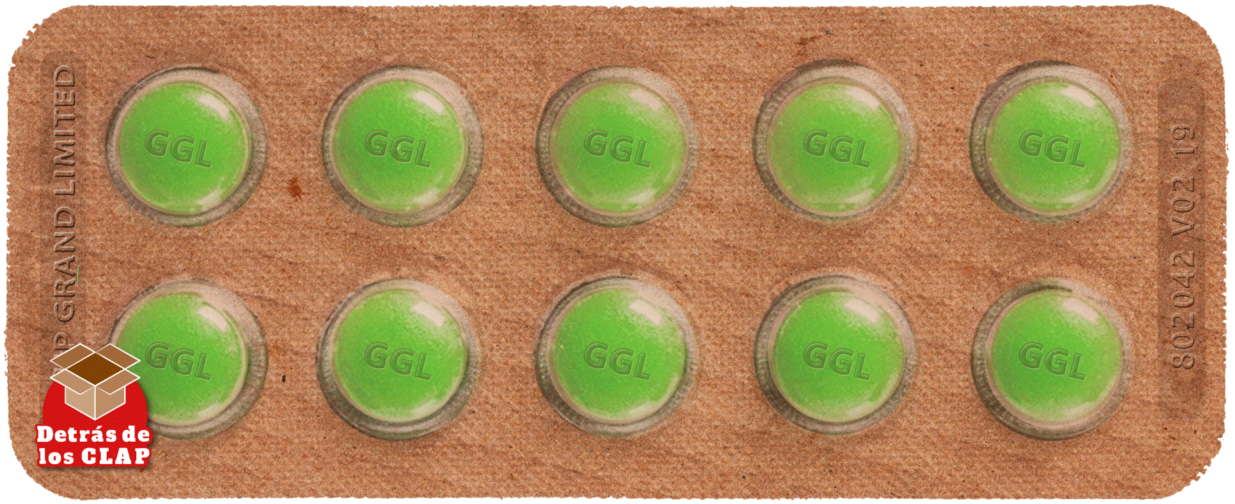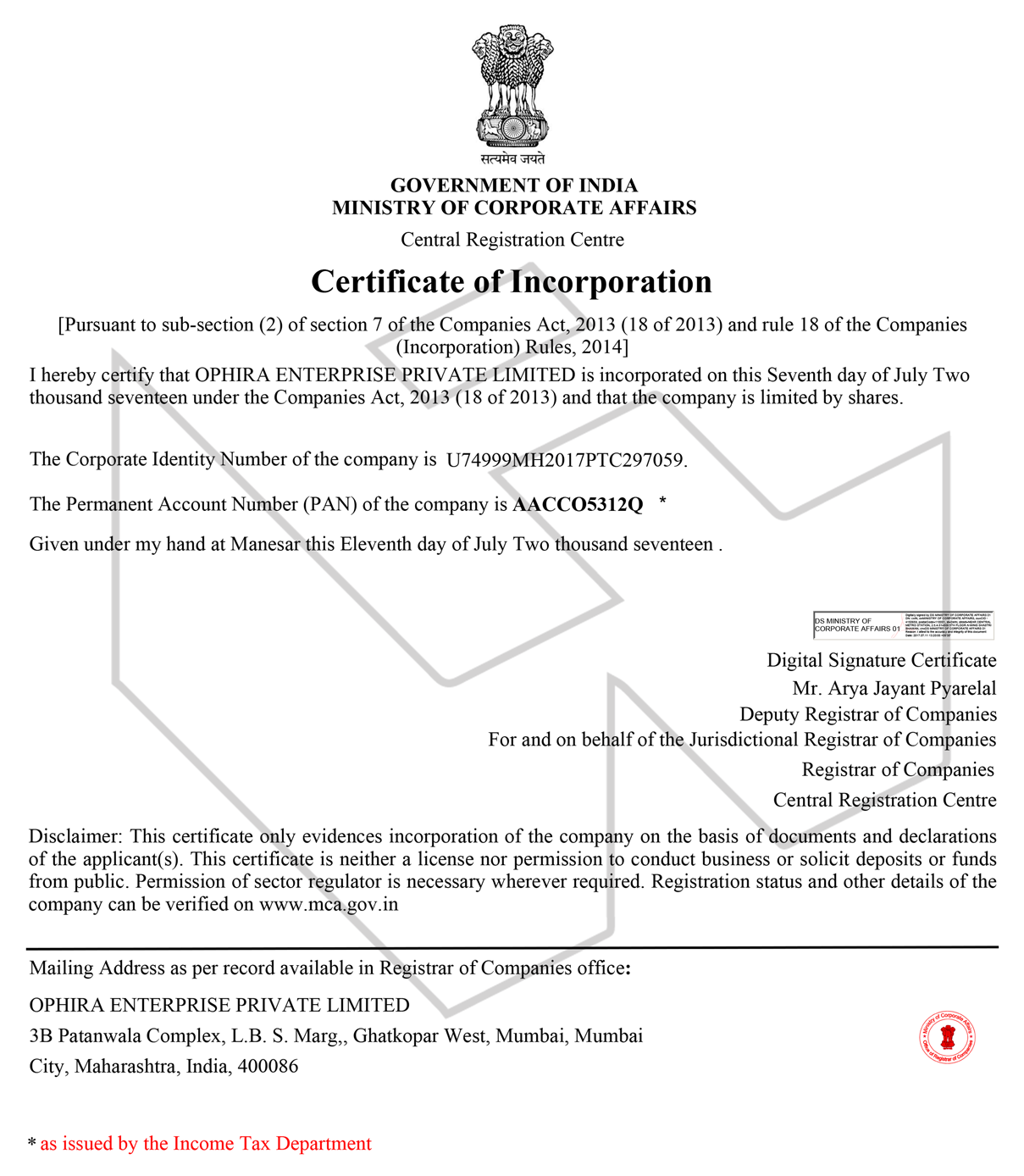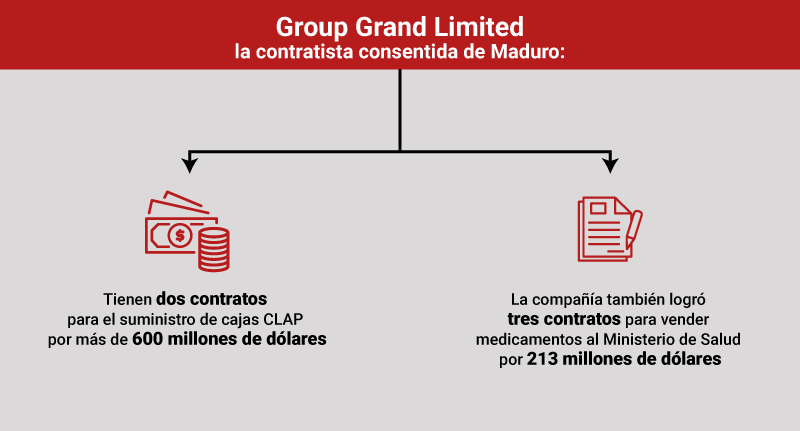

The Hong Kong-registered company, linked to Colombian entrepreneurs Alex Nain Saab Morán and Álvaro Enrique Pulido Vargas, seems to be the great ally of Nicolás Maduro Government. Millionaire contracts for the supply of millions of CLAP boxes, the flagship program of Hugo Chávez's successor, were just the beginning. The company, with a foggy trail in Venezuela, also acts as the intermediary of the Ministry of Health in the purchase of the highly-scarce medicines in hospitals and pharmacies in the country.
|
Getting your Trinity Audio player ready...
|
The businesses of Alex Nain Saab Morán and Álvaro Enrique Pulido Vargas with the Venezuelan Government extend and diversify behind the screen of Group Grand Limited. The company related to these Colombian entrepreneurs, registered in Hong Kong and with no trace in Venezuela, not only sells millions of boxes with food from the program of the Local Committee for Supply and Production (Clap) to the Government of Nicolás Maduro, but is also one of the intermediaries chosen by the Venezuelan leadership to buy medicines in India.
The fact that it is almost a dummy company has not prevented Group Grand Limited from achieving a millionaire shower of contracts that based on last year’s documents reveal that the company acts as a supplier of medicines for the Ministry of People’s Power for Health (MPPS), endorsed by the state-owned Venezuelan Foreign Trade Corporation (Corpovex), which centralizes public imports, headed by Major General Giuseppe Yoffreda Yorio.
In March 2017, at least three contracts for the purchase of medicines, amounting to just over 213 million dollars and identified with the numbers 0026, 0030 and 0050 were entered into between Group Grand Limited and Corpovex. The first one, for a value of 70.9 million dollars, set the exchange rate at - the now extinct - 10 bolivars per dollar "under exchange agreement No. 35 of March 9, 2016;" preferential dollars that local pharmaceutical companies have not seen for years, suffocated by the exchange rate trap that has led to a 60% collapse of the pharmaceutical market since 2014 and a nearly 90% shortage of medicines in the country.
These 213 million dollars are equal, for example, to 33% of the 642 million dollars owed by the authorities to the twenty companies grouped in the Chamber of the Pharmaceutical Industry (Cifar) for unpaid imports. "This year we were awarded barely $ 272,000, while in 2016, we had $ 79 million for the sector," Tito López, president of Cifar, recently complained on a local radio station.
But Group Grand Limited does not face these difficulties and its participation in the pharmaceutical business was an addition to the supply of millions of CLAP boxes that it also agreed upon with the Government of Táchira last year, after Nicolás Maduro approved the then governor and current Minister of Foreign Trade, José Gregorio Vielma Mora, 340 million dollars for the sale of 10 million food combos, and with the Corporation for Food and Product Services (Cuspal), attached to the Ministry of Food, for the dispatch of 11 million 500 thousand CLAP boxes, which allowed it to invoice 113 million dollars in just one day (September 29, 2017).
Recently obtained documents confirm that while buying millions of boxes of food in Mexico, the company was also looking in India for medicines that Nicolás Maduro had promised but that are scarce in hospitals and pharmacies. Something could be inferred on the now disabled website of Group Grand Limited since, in addition to products for CLAP boxes, like canned tuna, oil, pasta and mayonnaise, it also offered a "portfolio" of medicines with "over 5,000 references" together with the names of laboratories like Roche, Sanofi Aventis, Pfizer and Novartis, among others.
Invoices linked to contract 0050 show that in October 2017, Group Grand Limited dispatched MPPS drugs purchased in India —one of the largest generic drug manufacturers in the world, to which the Venezuelan Government appealed after accumulating millionaire defaults with pharmaceutical multinationals. The shipment included 56,000 units of the antiepileptic Phenytoin (Diphenylhydantoin), at $ 8.77 per unit, and 350,000 units of the antibiotic Amoxicillin (Clavulanic Acid), at $ 19.69 per unit, shipped from Nhava Sheva port, on the Arabian Sea, to the terminal of La Guaira, on the central coast of Venezuela.
The shipping papers indicate that the goods had to arrive on November 21, 2017 at the Venezuelan port. It was around those days when Nicolás Maduro accused his Colombian counterpart, Juan Manuel Santos, of blocking the shipment of medicines to Venezuela.
"The Government of Juan Manuel Santos prohibited that some medicines brought from Colombia were sold to Venezuela. Well, that is okay. We will not buy them in Colombia, Santos. Take your medicines, we will buy them in India and they will arrive very soon in Venezuela. Swallow your medicines and your drugs, and your cocaine!" attacked the president on November 14, possibly when the shipment of Group Grand Limited was approaching the Venezuelan coasts. Months later, in March 2018, Maduro announced the arrival from India of a batch of products to treat malaria, and reiterated the accusations against the Colombian President. "He (Juan Manuel Santos) seized the medicines against malaria (...) We bought them from India."
This week, was the turn of the Minister of Health, Luis Lopez, to defend the purchases from India and attack the multinationals of the sector. "Do you think that the President prefers to buy medicines in India than in Venezuela? You are wrong. The President wants to buy medicines in Venezuela," he said on June 11, on a public radio station. The official described the pharmaceutical laboratories as a "cartel" and affirmed that "know that we will not buy directly from you anymore. We will acquire them through the Pan American Health Organization (PAHO). Scoundrels, we will not buy from you anymore. No more intermediaries, only through PAHO!"
That public statement of a commercial war will certainly not affect Group Grand Limited. The documents outlined the foray of the company into the pharmaceutical sector, as it recorded that it bought the drugs, at least, from two Indian companies. One of them is Bharat Parenterals Limited, a pharmaceutical company founded in 1992 that did not respond to the interview request sent by email for this report. Last May, around 14 tons of drugs from that company arrived for the MPPS at the port of La Guaira, a sign that the supplies keep going.
The other company that Group Grand Limited turned to was Ophira Enterprise Private Limited. This company was created on July 7, 2017, just months after Group Grand Limited agreed in Caracas with Corpovex to sell medicines for the MPPS. Ophira Enterprise Private Limited was registered in the city of Mumbai with a capital of one million rupees - around $ 15,000 - and its directors are Malini Ranjitkumar Parik and Rajesh Rajintkumar Parikh, the latter also associated with another pharmaceutical company called Coral Laboratories Limited. "Doing business as manufacturers, producers, processors, refiners, wholesalers, agents, importers, exporters, merchants, vendors, distributors, dealers or distributors of medicines" is part of the corporate purpose of this company that does not even have a website.

The invoices of the medicines also reveal the interest of Group Grand Limited to erase the traces that at the time allowed relating the company with Colombian entrepreneurs Alex Nain Saab Morán and Álvaro Enrique Pulido Vargas. For example, the address of the company in Caracas does no longer appear on the letterhead of those papers. On the other hand, it did appear on the invoices issued to Cobiserta, first, and to Cuspal, then, for the sale of the CLAP boxes. It also initially appeared on the company's website and led to Centro Galipán, in the same offices of Fondo Global de Construcción, the banner of a business network that was born in Malta and that in 2011 allowed Alex Nain Saab Morán to sign at the Palace of Miraflores a millionaire agreement for the construction of prefabricated houses before the eyes of Hugo Chávez and Juan Manuel Santos. In the end, this agreement generated an investigation by the Ecuadorian Prosecutor General for various irregularities.
Although the company did not respond to the interview request, the effort to eliminate the trace in Caracas may be motivated by the claim that Prosecutor General of Venezuela Luisa Ortega Díaz, dismissed by the Government, filed in last year’s August. On that occasion, Ortega Díaz told the media in Brazil that Group Grand Limited actually belonged to Nicolás Maduro, but was managed by the Colombian entrepreneur duo. " We have conducted an investigation on the CLAP food bags delivered in Venezuela by a company registered in Mexico under the name of two people. The company is Group Grand Limited and presumably belongs to the president of the Republic."

The former official was referring to the subsidiary of Group Grand Limited, registered in Mexico City in March 2017, which used a corporate structure, similar to the one registered in Hong Kong. While Shadi Nain Saab Certain, son of Alex Nain Saab Morán was the beneficiary from 2015 until February 24, 2017 of the latter, Enmanuel Enrique Rubio González —son of Álvaro Enrique Pulido Vargas, whose original identity is Germán Rubio, according to the investigations of Univisión journalist Gerardo Reyes—appeared as attorney-in-fact of the Mexican company.
As if that were not enough, the legal representative of Group Grand Limited before Corpovex in the contracts for the supply of medicines and food for the CLAPs is Andreina Fuentes Mazzei, a lawyer who is also the CEO of Fondo Global de Construcción, the contractor with which Alex Nain Saab Morán had access to the Miraflores Palace to seal an alliance with Nicolás Maduro that years later continues as a constant flow of millions of dollars.
For some months now, parliament members of different opposition political parties have been offering to make informal proceedings on request before agencies like the Colombian Attorney General's Office and the United States Department of the Treasury. They issue letters of good conduct to those responsible for negotiations on the imports for CLAP combos, so that such agencies absolve or stop investigating entrepreneurs like Carlos Lizcano, a subordinate of the already sanctioned Alex Saab and Alvaro Pulido. The fact that the most active defense of the main social program and focus of corruption of the government of Nicolas Maduro comes from the heart of the National Assembly 'in contempt' is just one of the ironies of this story.
Adrián Perdomo Mata has just entered the list of sanctioned entities of the US Department of the Treasury, as president of Minerven, the state company in charge of exploring, exporting and processing precious metals, particularly gold from the Guayana mines. His arrival in office coincided with the boom in exports of Venezuelan gold to new destinations, like Turkey, to finance food imports. Behind these secretive operations is the shadow of Alex Saab and Álvaro Pulido, the main beneficiaries of the sales of food for the Local Supply and Production Committee (Clap). Perdomo worked with them before Nicolás Maduro placed him in charge of the Venezuelan gold.
A study by Mexican authorities confirms what the palate of the Venezuelans quickly detected: There is something odd in the Mexican canned tuna that comes in the combos of the Local Supply and Production Committee (CLAP). At least three of the brands that the poorest homes have consumed in the country since March 2016, when the state plan was formalized, have high proportions of soy, a vegetable protein that although not harmful, it does not have the same taste and protein contribution of tuna. Behind the addition of soy there is an operation to reduce costs where all the intermediaries, handpicked by the Venezuelan Government to buy the goods, have participated.
Gassan Salama, a Palestinian-cause activist, born in Colombia and naturalized Panamanian, frequently posts messages supporting the Cuban and Bolivarian revolutions on his social media accounts. But that leaning is not the main sign to doubt his impartiality as an observer of the elections in Venezuela, a role he played in the contested elections whereby Nicolás Maduro ratified himself as president. In fact, Salama, an entrepreneur and politician who has carried out controversial searches for submarine wrecks in Caribbean waters, found his true treasure in the main social aid and control program of Chavismo, the Clap, for which he receives millions of euros.
While the key role of Colombian entrepreneurs Alex Saab Morán and Álvaro Pulido Vargas in the import scheme of Nicolás Maduro’s Government program has come to light, almost nothing has been said about the participation of the traders who act as suppliers from Mexico. These are economic groups that, even before doing business with Venezuela, were not alien to public controversy.
Even though there are new brands, a new physical-chemical analysis requested by Armando.Info to UCV researchers shows that the milk powder currently distributed through the Venezuelan Government's food aid program, still has poor nutritional performance that jeopardizes the health of those who consume it. In the meantime, a mysterious supplier manages to monopolize the increasing imports and sales from Mexico to Venezuela.
When Vice President Delcy Rodríguez turned to a group of Mexican friends and partners to lessen the new electricity emergency in Venezuela, she laid the foundation stone of a shortcut through which Chavismo and its commercial allies have dodged the sanctions imposed by Washington on PDVSA’s exports of crude oil. Since then, with Alex Saab, Joaquín Leal and Alessandro Bazzoni as key figures, the circuit has spread to some thirty countries to trade other Venezuelan commodities. This is part of the revelations of this joint investigative series between the newspaper El País and Armando.info, developed from a leak of thousands of documents.
Leaked documents on Libre Abordo and the rest of the shady network that Joaquín Leal managed from Mexico, with tentacles reaching 30 countries, ―aimed to trade PDVSA crude oil and other raw materials that the Caracas regime needed to place in international markets in spite of the sanctions― show that the businessman claimed to have the approval of the Mexican government and supplies from Segalmex, an official entity. Beyond this smoking gun, there is evidence that Leal had privileged access to the vice foreign minister for Latin America and the Caribbean, Maximiliano Reyes.
The business structure that Alex Saab had registered in Turkey—revealed in 2018 in an article by Armando.info—was merely a false start for his plans to export Venezuelan coal. Almost simultaneously, the Colombian merchant made contact with his Mexican counterpart, Joaquín Leal, to plot a network that would not only market crude oil from Venezuelan state oil company PDVSA, as part of a maneuver to bypass the sanctions imposed by Washington, but would also take charge of a scheme to export coal from the mines of Zulia, in western Venezuela. The dirty play allowed that thousands of tons, valued in millions of dollars, ended up in ports in Mexico and Central America.
As part of their business network based in Mexico, with one foot in Dubai, the two traders devised a way to replace the operation of the large international credit card franchises if they were to abandon the Venezuelan market because of Washington’s sanctions. The developed electronic payment system, “Paquete Alcance,” aimed to get hundreds of millions of dollars in remittances sent by expatriates and use them to finance purchases at CLAP stores.
Scions of different lineages of tycoons in Venezuela, Francisco D’Agostino and Eduardo Cisneros are non-blood relatives. They were also partners for a short time in Elemento Oil & Gas Ltd, a Malta-based company, over which the young Cisneros eventually took full ownership. Elemento was a protagonist in the secret network of Venezuelan crude oil marketing that Joaquín Leal activated from Mexico. However, when it came to imposing sanctions, Washington penalized D’Agostino only… Why?
Through a company registered in Mexico – Consorcio Panamericano de Exportación – with no known trajectory or experience, Joaquín Leal made a daring proposal to the Venezuelan Guyana Corporation to “reactivate” the aluminum industry, paralyzed after March 2019 blackout. The business proposed to pay the power supply of state-owned companies in exchange for payment-in-kind with the metal.